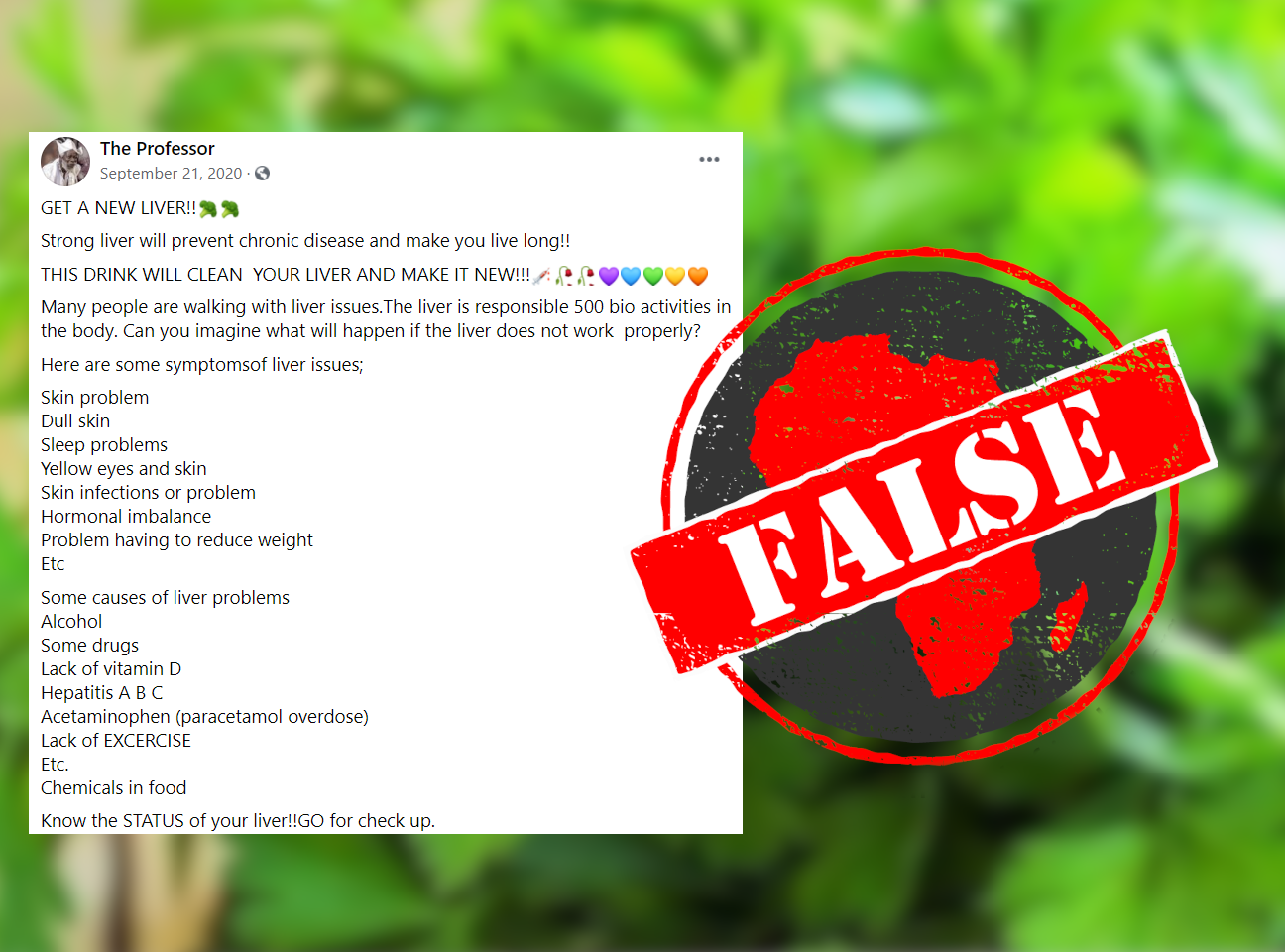A message posted on a Facebook page in Nigeria claims a mixture of parsley, lemon and cucumber can clean the liver.
“Get a new liver,” it says, adding that “this drink will clean your liver and make it new”.
It lists how the mixture should be made and taken: “Blend all together and drink on an empty stomach in the morning and evening for one month. Do it twice a day for one month. Break for two weeks. Do it for another month.”
The liver is the largest gland in the body. It produces bile and removes waste products from the body, as well as regulates blood volume and eliminates old red blood cells.
We checked if there was any science behind this folk remedy.

‘No scientific evidence’
Abraham Orkurga Malu, professor of internal medicine at the University of Jos and a consultant physician to the Jos University Teaching Hospital in central Nigeria, told Africa Check there was no scientific evidence for the claim.
“Such a claim should be ignored,” he said. “People should be mindful of mixtures they consume. These mixtures do more harm than good to the body.”
Malu said a better way to care for the liver was to eat a healthy diet and maintain an average weight.
Africa Check has debunked similar posts claiming certain mixtures can purge the liver of toxins and fat.
But liver “detoxification” is considered a myth. There is no evidence to support it.
Republish our content for free
For publishers: what to do if your post is rated false
A fact-checker has rated your Facebook or Instagram post as “false”, “altered”, “partly false” or “missing context”. This could have serious consequences. What do you do?
Click on our guide for the steps you should follow.
Publishers guideAfrica Check teams up with Facebook
Africa Check is a partner in Meta's third-party fact-checking programme to help stop the spread of false information on social media.
The content we rate as “false” will be downgraded on Facebook and Instagram. This means fewer people will see it.
You can also help identify false information on Facebook. This guide explains how.


Add new comment